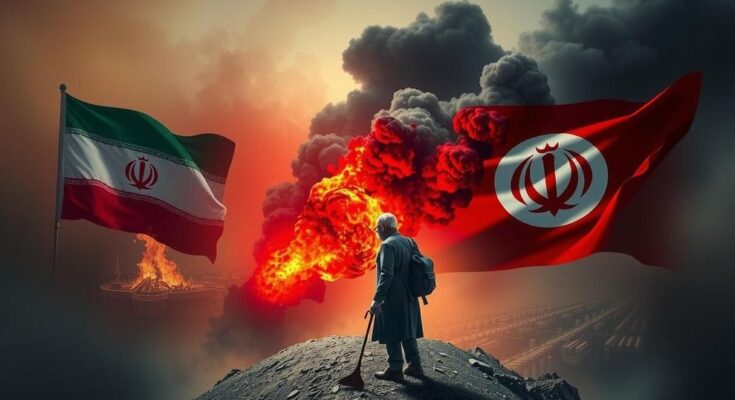Escalating tensions arise between Iran and Afghanistan as Iran condemns the Taliban for constructing dams that allegedly violate water-sharing agreements. The Pashdan Dam and others aim to alleviate Afghanistan’s water scarcity, but Iran insists on adherence to treaties regarding shared river resources. Experts question the existence of formal agreements, prompting discussions on Afghanistan’s rights to utilize its water resources for economic recovery.
In light of increasing skirmishes between Pakistan and Afghanistan, tensions have escalated further as Iran challenges the Taliban government over dam constructions particularly impacting water resources shared between the two nations. Tehran has accused Afghanistan of violating prior agreements regarding water allocation from rivers flowing into Iranian territory, a claim the Afghan government has dismissed. The contention centers around the Pashdan Dam in Herat and two planned dams on the Farah River, intended to alleviate Afghanistan’s long-standing water scarcity issues exacerbated by decades of conflict.
The Taliban has initiated the water-filling process of the Pashdan Dam, constructed on the Karokh River, while also moving forward with the Bakhshabad Dam and preparing to commence work on the Kaj Samad Dam soon. Such infrastructure projects are designed to support agricultural irrigation, ultimately addressing the dire water shortage in Afghanistan.
Iran’s Foreign Ministry has expressed strong concerns, stating that these developments breach bilateral agreements and undermine their water rights. Iranian Foreign Ministry Spokesperson Ismail Baghaei has urged the Afghan government to comply with treaties that govern water usage, emphasizing that these protocols should dictate the equitable distribution of water resources. The Iranian stance highlights a demand for adherence to international laws and customs regarding water rights.
Contrasting viewpoints exist concerning the legal framework governing water allocation between Iran and Afghanistan. Some experts argue that no formal treaty governs the use of the Harirod and Farah rivers, granting Afghanistan a level of autonomy in managing its water resources to combat the economic repercussions of prolonged conflict. Herat Expert Council Head Mohammad Rafiq Shaheer stated the necessity for Afghanistan to utilize its water resources effectively to rebuild the nation’s economy and ensure food security for its populace.
The ongoing disputes over shared water resources between Iran and Afghanistan are rooted in lengthy historical grievances concerning water rights allocation. Given Afghanistan’s challenging climatic conditions and ongoing water shortages exacerbated by conflicts, the construction of dams represents a strategic effort to enhance agricultural productivity. Conversely, Iran perceives these developments as violations of established agreements, prompting diplomatic tensions as Tehran seeks compliance from the Taliban government to respect water rights through formal treaties and international laws.
In conclusion, the rising tensions between Iran and Afghanistan over water management signify deeper concerns about resource allocation amidst a backdrop of conflict. As the Taliban progresses with dam constructions to bolster agricultural needs, Iran’s insistence on adhering to bilateral agreements underscores the complexities of transboundary water politics. Ultimately, it is imperative for both nations to engage in constructive dialogue to resolve their disputes and ensure equitable water usage that fosters regional stability.
Original Source: www.india.com




